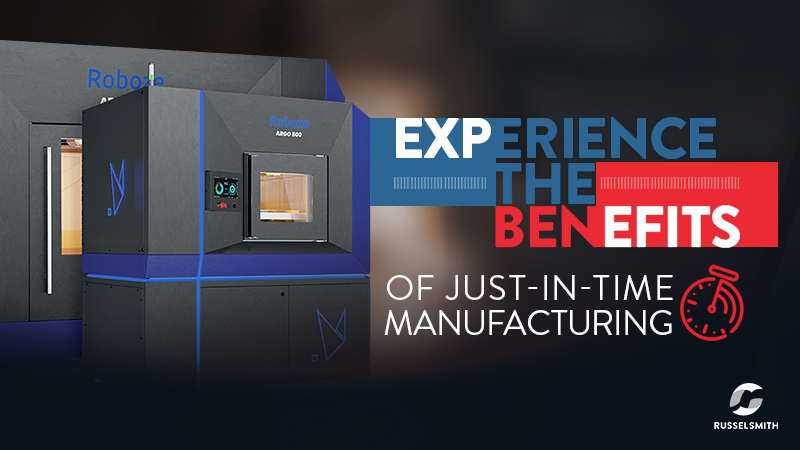Energy services provider RusselSmith has received approval from the Nigerian Upstream Petroleum Regulatory Commission (NUPRC).
The approval comes under the leadership of Commission Chief Executive (CCE) Mr. Gbenga Komolafe. It allows RusselSmith to deploy its industrial non-metallic additive manufacturing solution within the Nigerian oil and gas sector. RusselSmith’s additive manufacturing uses advanced 3D printing to create functional, corrosion-resistant industrial components locally, much faster than traditional methods. This approach saves time, and costs, reduces carbon footprints, and boosts operational efficiency. Teaming up with Roboze, RusselSmith’s solution not only tackles supply chain issues but also fosters technological innovation in Nigerian manufacturing. By digitizing the supply chain with additive manufacturing, production processes improve, says the company.
“We at Roboze are proud to be associated with this innovative development,” said Alessio Lorusso, CEO of Roboze. “The approval by the NUPRC for the use of this additive manufacturing technology is a significant step forward for Nigeria’s energy sector in embracing digitalization, and we are fully committed to supporting our partner, RusselSmith, with our expertise and global network to ensure the success of this solution.”

A new milestone in industrial manufacturing for Africa
The adoption of additive manufacturing represents a significant step forward in addressing supply chain challenges in Africa. The continent hosts various industries, including manufacturing, oil and gas, medicine, and transportation, all of which heavily rely on part manufacturers worldwide, according to RusselSmith.
RusselSmith’s additive manufacturing solution utilizes high-performance materials such as super polymers and composites to create finished parts that are highly resistant to material degradation and corrosion. These materials can withstand extreme conditions without compromising their functionality and desired properties. Leveraging its technical expertise and access to Roboze’s extensive experience and global 3D Parts Network, RusselSmith is poised to accelerate the development of best practices for industrial 3D printing in the Nigerian oil and gas industry.
RusselSmith’s CEO, Kayode Adeleke said, “This is a new milestone in the Nigerian energy sector, and we are excited to be leading the charge in industrial 3D manufacturing. We are also proud that the NUPRC has once again exhibited its role in the industry as not just a regulator, but a facilitator of business in Nigeria. We are building the foundation for a digital supply chain across Africa, and this is just the beginning. With this approval, our non-metallic additive manufacturing solution is now operational and available to service the needs of the Nigerian market.”

Transforming the oil and gas sector with 3D printing
Schoeller-Bleckmann Oilfield Technology (SBOT) acquired a Sapphire XC large-format 3D printer from Velo3D. This metal additive manufacturing system expands SBOT’s capabilities, meeting rising customer demands for Inconel 718 metal parts in the oil and gas sector. With advanced features, the printer enhances manufacturing capacity, efficiently producing large components and optimizing costs. It can create components up to 600 mm in diameter and 550 mm in height.
KOSO Kent Introl, a UK oil and gas valve parts manufacturer, partnered with global engineering firm Renishaw to delve into the benefits of additive manufacturing. Kent Introl adopted Renishaw’s RenAM 500Q Flex system, employing laser powder bed fusion technology to efficiently create complex components. This strategic move allows Kent Introl to meet rising industry demands for innovation, energy efficiency, and carbon reduction, while simultaneously enhancing part design, offering on-demand services, and improving productivity through additive manufacturing experimentation.
Voting has now started for the 3D Printing Industry Awards 2023. Cast your vote now!
What does the future of 3D printing for the next ten years hold?
What engineering challenges will need to be tackled in the additive manufacturing sector in the coming decade?
To stay up to date with the latest 3D printing news, don’t forget to subscribe to the 3D Printing Industry newsletter or follow us on Twitter, or like our page on Facebook.
While you’re here, why not subscribe to our Youtube channel? Featuring discussion, debriefs, video shorts, and webinar replays.
Are you looking for a job in the additive manufacturing industry? Visit 3D Printing Jobs for a selection of roles in the industry.
Featured image shows RusselSmith and Roboze to advance the Nigerian oil and gas sector. Photo via RusselSmith.



